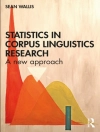The status of grammaticalization has been the subject of many controversial discussions. The contributions to What makes Grammaticalization? approach the prevalent phenomenon from the angle of language structure and focus on the interrelation between the levels of phonology, pragmatics (inference), discourse and the lexicon and some of them try to integrate the areal perspective. A wealth of data from Slavonic languages as well as from languages of other genetic and areal affiliation is discussed. The book is of interest to linguists specializing in grammaticalization, lexicalization and morphological typology, to language typologists as well as to functional, historical and cognitive linguists.
Tabella dei contenuti
I. General issues
1. W. Bisang, B. Wiemer: Introduction: What makes grammaticalization – a look from its components and its fringes
2. N. Himmelmann: Lexicalization and grammaticization: opposite or orthogonal
II. On building grammar from below and from above: between phonology and
pragmatics
3. L. Gaeta: Exploring grammaticalization from below
4. S. Günthner & K. Mutz: Grammaticalization vs. pragmaticalization? The development of pragmatic markers in German and Italian
5. W. Bisang: Grammaticalization without coevolution of form and meaning as an areal phenomenon in East and mainland Southeast Asia – the case of tense-aspect-mood (TAM)
6. D. Weiss: The rise of an indefinite article: the case of Macedonian eden
III. Grammatical derivation
7. V. Lehmann: Grammaticalization via extending derivation
8. K. Böttger: Grammaticalization the derivational way: the Russian aspectual prefixes po-, za-, ot-
IV. The role of lexical semantics and of constructions
9. E. König & L. Vezzosi: The role of predicate meaning in the development of reflexivity 10. B. Hansen: Modals and boundaries of grammaticalization. The case of Russian, Polish and Serbian/Croatian 11. B. Wiemer: The evolution of passives as grammatical constructions in Northern Slavic and Baltic languages
Circa l’autore
Walter Bisang is Professor of Linguistics at Mainz University, Germany.
Nikolaus Himmelmann is Professor of Linguistics at Ruhr University Bochum, Germany.
Björn Wiemer teaches at the University of Konstanz, Germany.












